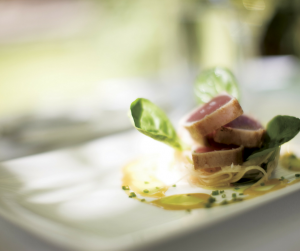 One of the things I love about going on vacation (other than the obvious) is that I get to talk to people who I’ve never met before: people who are completely different from me, who have different life experiences, and know totally different things!
One of the things I love about going on vacation (other than the obvious) is that I get to talk to people who I’ve never met before: people who are completely different from me, who have different life experiences, and know totally different things!
Of course, when they hear that I’m a Health Coach, they either they tell me how much they know about health and fitness, or they start confessing their diet and exercise sins as if I’m a health-priest, with the ability to absolve them of their fitness sins. Ha!
But the other thing that I get is a TON of questions. Which I LOVE! Because A) I could talk about health and fitness all day long (just ask Gary) and B) There is SO MUCH misinformation ‘out there’ that I get to clear up – or at least, give folks another perspective.
As I was talking to my new friend (incidentally, the same woman who said that she didn’t eat fruit, vegetables, or seafood) she very proudly stated “I eat breakfast like a king, lunch like a queen, and dinner like a prince.”
And that statement made me take pause because:
- It’s a statement that has been around for a really long time
- The way she said it sounded like she was paying it lip service
- And, is it really true?
And so I started thinking about these little sticky phrases that we have learned over the years, how we get attached to them, and use them as guideposts for healthy eating, and approval from others.
Huh? Approval from others? What am I talking about?
As I mentioned above, I get a lot of fitness confessions: “I used to work out, and life got in the way. I haven’t worked out in 5 years, but I’m going to get back on it after this vacation!”
We want to hear folks tell us that we’re doing okay. By saying this familiar phrase, that most people accept as reasonably true and good advice, I think that’s what she was looking for: my approval, and for me to tell her that she’s doing good stuff.
But you know what? It doesn’t matter what I think. What matters is if it works for her.
If there is ONE thing that I have learned in my 10+ years of being in health & fitness, it’s that there are no universal rules that cover all people.
So, let’s talk about the idea that you need to eat your largest meal in the morning, and taper your calories as you go along your day.
Is it really true?
Like all good responses from me, the answer is, ‘It depends.’
It all depends on your activity levels.
You want to eat the bulk of your calories when you are the most active, and eat fewer calories when you are least active.
So, where most folks are inactive in the evening, the advice to eat your smallest meals at dinner seems to make sense.
But what if you exercise in the evening? Do you still want to eat your smallest meal then? Probably not.
Granted, you don’t want to eat a heavy meal before bed, but maybe instead of eating your last meal as your largest, divide your last few meals into equal-ish energy amounts so that you’re not going to bed on an empty stomach; because that can disturb your sleep.
For Mid-day training, it makes sense to eat the bulk of your calories around (probably after) that workout so that you can replenish the energy that you used during your workout.
What if you don’t workout*?
If you don’t explicitly strength train or do conditioning workouts – something that takes a TON of energy – you just want to notice when you are most active, and eat to support your body’s energy needs. Anything more is going to lead to weight gain. If you’re actively trying to lose body fat, you can eat less, but make sure that it’s not too much less. cutting back on calories too much can lead to light-headedness and low energy (and ultimately could lead to an epic face-down-in-a-pint-of-ice-cream episode – and no one wants that!)
*And although I am a HUGE supporter of walking, walking is not exercising or working out. Walking is movement that everyone should be doing as much as they can every single day.